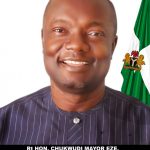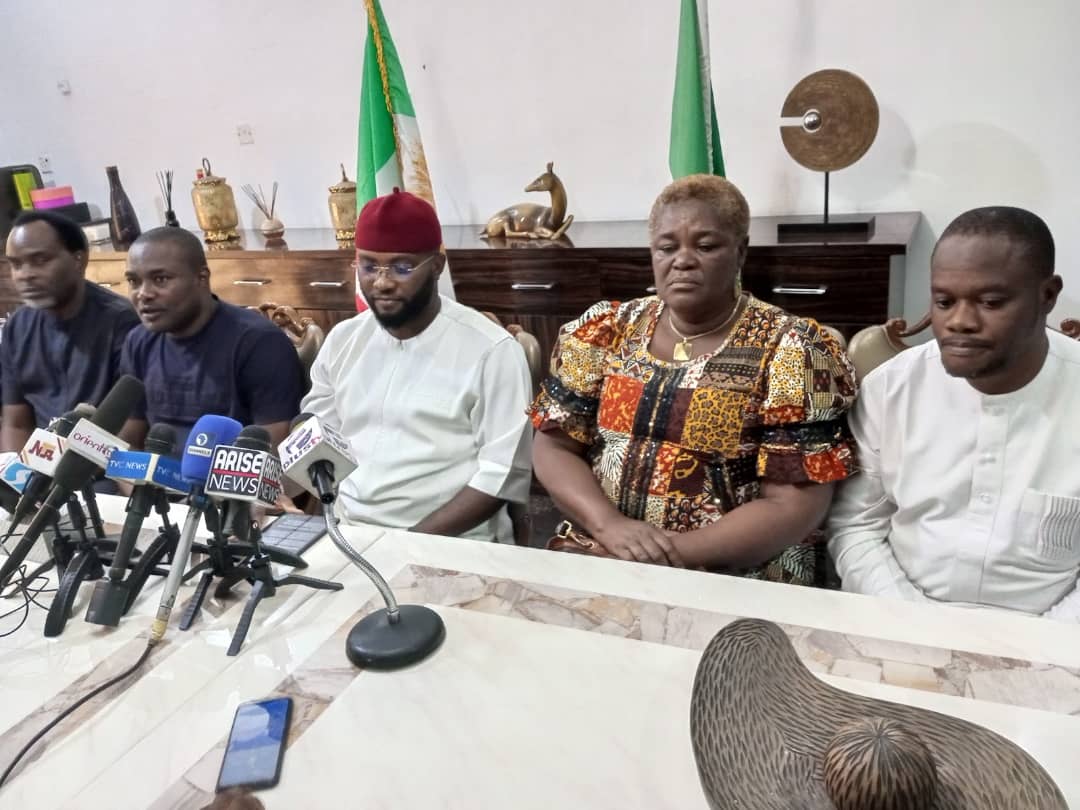It is now three years less two decades since APGA came into being as a political party in Nigeria. Tracing or excavating the various narratives about the formation of the party may not serve our purposes here, but it is important to quickly note that its emergence was a response to the perceptible contraction of Nigeria’s political space against the Igbo, so that APGA was hoped to become not just be a platform for reestablishing the political relevance of the Igbo but also a flagship party for political inclusiveness.
Given the foregoing, it is evident that APGA from inception defined itself as a remedy to the inadequacies rampant within the country’s party system – a progressive alternative to PDP’s unbridled neo-liberalism, ANPP’s retrogressive feudalism and AD’s Yoruba-centric orientations. This fact is amply reflected in the preamble to the constitution of the party, which takes cognizance of the overriding necessity “to save Nigerians from poverty, disease, ignorance, corruption, discrimination and exploitation which have constituted stumbling blocks to our nation’s political, economic and progressive development”.
In less than one year of its existence, the popular acceptability of APGA by Nigerians was proven. Across the South East, for instance, political incumbents had their positions seamlessly taken by APGA. During the 2003 general elections in states like Imo and Enugu, Ezekiel Izuogu and Ugo Agballa of APGA respectively so glaringly defeated incumbent governors that it took only an INEC which was unarguably rich in corruption and deficient in morals to declare otherwise.
In the instance of Anambra State, it took the irreconcilable impasse between some PDP godfathers and their godson-governor for APGA’s mandate to be restored. Overtly confessing to the theft of mandate by his boys, Obasanjo had admonished Ngige, saying, “Even among thieves there must be equity.” The Anambra situation was so bad that the inimitable Chinua Achebe turned down a national honour because of it and even openly accused Obasanjo on CNN of setting Anambra ablaze. The point here is that the APGA ideology was strong, thoroughgoing and so pervasive that it could only take a state-sanctioned electoral robbery to contain the party in 2003.
However, soon afterwards, the quotient of the party’s political expectations began to dwindle, just as its leadership was mired in a crisis occasioned by the ambitions of one man, Chief Victor Umeh.
Blackmailing and upstaging the pioneer National Chairman, Chief Chekwas Okorie, was bizarre but not more so than the harrowing humiliation of Okorie’s next in succession line, Ikenechoha Maxi Okwu, out of the party by Umeh, who as Treasurer became National Chairman of APGA.
What followed thenceforth was commodification and commercialization of the party’s tickets to political offices, which only grew in audacity and impunity with time. Where party structures were not parcelled out to one man as some sort of prebend upon stupendous gratification, it was purely a matter of buying and selling of tickets without any recourse to the guidelines. Imo State has almost always served as a poster boy for whatever APGA represents, and from Agbaso in 2007, Okorocha in 2011 to Ihenacho in 2015, APGA in Imo never organised any primaries no matter how badly done.
The case of 2015 was even more heartrending. The Umeh-led National Working Committee had concluded plans to impose a candidate on the party in Imo, and, without bothering about primaries, decided not to sell nomination and expression of interest forms to the other contenders.
Peeved by this despotic and undemocratic practice, some members of the Imo State Working Committee of the party constituted themselves into a movement known as the APGA Integrity Group. While on their way to Abuja in protest against the obnoxious exclusion of aspirants from the party, they got involved in an auto crash that claimed the lives of three at Uromi in Edo State. The then State Publicity Secretary of the party in Imo, Tony Mgbeahurike, died in the accident.
In 2015, it was bazaar for Umeh and his men in Imo. In about fifteen state constituencies in Imo, candidates were replaced when higher bidders appeared. In about five federal constituencies, the same thing happened. It is hard to forget the lamentations of Chief Ishiuba from Owerri after his torturous experience. In short, the primitive accumulation witnessed in Imo was just what Karl Marx defined it to be: “Those events written in the annals of mankind in letters of blood and fire.”
It is way too distressing to recount the ills created and sustained by Umeh’s leadership in APGA but let it suffice to assert that what his successor, Ozonkpu Victor Oye, had sought right from the outset was a recalibration away from the institution of evil already firmly established. Oye was tacitly up against the erosion of the party’s democratic credentials, and he had sorely craved to create a regime of accountability to the end that the APGA consciousness might be rekindled in the people and its electoral prospects expanded. By his oath of office, Oye declared that he was handing over APGA to God.
But, wasn’t Oye expecting that corruption would fight back? Oye, it seems clear to me, was not expecting what he got thereafter.
Briefly after the 2016 governorship election in Edo State, Umeh staged a comeback to the leadership of the party which he was convinced was not following the examples he had set. He quickly drafted Ozo Nwabueze Okafor into his scheme to announce, with a few characters, the suspension of the National Chairman, Ozonkpu Victor Oye. When Nwabueze Okafor died, the battle to remove Oye continued through Chief Martin Agbaso, a non-member of the party, until the Supreme Court put an end to it in favour of Ozonkpu.
Much has been made about the October 2018 APGA governorship primaries in Imo State. Many seem not to realize its connection with unfolding continuum of Umeh’s agenda to remove Oye from office. I will do a detailed analysis on this later. But below are things to be abreast of in the interim.
First, the Oye-led NWC was earnestly preparing to break the jinx and deliver the very first competitive and credible APGA primaries in Imo State. But most of the aspirants themselves preferred to blackmail one another within the hierarchy of the party. Very many of them went to negotiate for ticket instead of to sue for a level playing ground. Most of them were so desperate to get the ticket that one of them had even met a National Officer of the party from the North that was just passing by and instantly requested for his bank details and wired the sum five million Naira to him. When you now hear that the same person is alleging that his vehicle was collected by Oye under false pretense, you must take it with a pinch of salt. If he would display such haste to induce a Northerner with such whopping amount, how on earth would he want an enlightened audience to believe Oye took his vehicle. To nail his coffin, his letter filled with heartfelt supplications that Oye should graciously accept his car gift has just been surfaced!
Second, the stalemate which made the governorship primaries scheduled to hold at Aladimma Mall impossible was created by Umeh who had alternative plans and some other aspirants who felt they would not win the primary election. A particular aspirant mobilised over three thousand thugs and fans to the venue to cause a stampede and also detailed his new media team to be churning out propaganda that Oye wanted impose Okey Ezeh on the party, an attempt they vowed to resist.
Third, even after the Oye-led NWC had approved the Aladimma Mall as venue for the primaries, some aspirants still conspired and acquired the Rosey Arts Theater for a parallel primary election and went ahead to station their supporters their.
Fourth, the main anger of most of the aspirants was that their overtures to buy off the ticket were turned down. The agitation that money was collected from them sold to them by Umeh. The refund and resign mantra was an afterthought also initiated by Umeh to exploit the natural grievances of the losers in the contest to fight and seek the removal of Oye. During the first phase of the protests in Owerri, neither refund nor resign was never on the agenda.
Fifth, the NWC of APGA sold delegate forms for ten thousand Naira each. This, they hoped, would save the party from always relying a few individuals to fund the party. Every payment was made directly to the party’s Fidelity Bank account, and the sum total which was about N1.2 billion was thereafter declared publicly by Oye. I remember during that period I was a guest to one Saturday radio show on Zanders FM Owerri hosted by Gele Agbai. I had explained to my audience that building a wealthy political party was conducive for internal party democracy and would also be a disincentive to machine politics, since the influence of the wealthy few is the major factor that undermines intra-party democracy. Yet this was a slap on Umeh’s face who led APGA for eleven years yet could not declare more than forty million Naira. For the first time APGA became financially involved in prosecuting its governorship elections by donating fifty million Naira to each of its governorship candidates.
Sixth, that APGA is the only party in Nigeria that could afford have a National Secretariat in Abuja owed by itself, not rented, is another source of frustration to Umeh for which he seeks vengeance.
The next in this series will clarify all the issues raised and explain the latent and manifest functions of the leaked e-mail which Umeh sent to Obiano. It will further unearth how Mic Adams, an impostor, betrayed his colleagues like Owelle Onyeka Mbaso and Kayode Alabi who were assembled by Umeh and declared himself a factional National Chairman of APGA, and how Oye’s dignified silence has unsettled them and left them with the last option of gathering in a WhatsApp group to recount their losses in the botched coup which Umeh had plotted.





